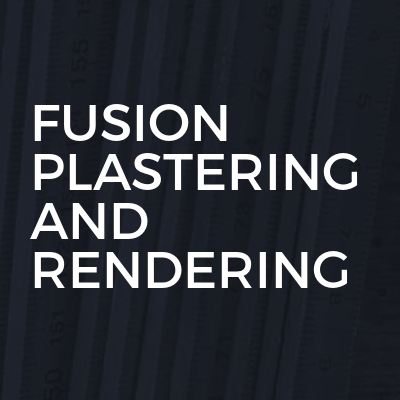Garage Conversions in Rothwell
Search Garage Conversions in places nearby
Understanding Garage Conversions in Rothwell
Garage conversions in Rothwell have become increasingly popular as homeowners seek to maximise their living space without the hassle of moving. Whether you're looking to create a new bedroom, a home office, or a playroom, converting your garage can be a cost-effective and efficient solution. This article will explore the ins and outs of garage conversions, providing you with a comprehensive guide to transforming your space.
The Benefits of Garage Conversions
Converting a garage offers numerous advantages. Firstly, it can significantly increase the value of your property. A well-executed conversion can add up to 20% to your home's value, making it a smart investment. Additionally, it provides extra living space, which can be tailored to your specific needs, whether it's a guest room, a gym, or a studio.
Moreover, garage conversions are typically quicker and less disruptive than building an extension. They utilise existing structures, which means you can avoid the lengthy planning permission process often required for new builds. This makes it an attractive option for those looking to enhance their home swiftly and efficiently.
Planning Permission and Building Regulations
Before embarking on a garage conversion in Rothwell, it's crucial to understand the planning permission and building regulations involved. Generally, converting a garage into a habitable space falls under permitted development rights, meaning you may not need planning permission. However, this can vary depending on your property's location and specific circumstances.
Building regulations, on the other hand, are mandatory. These ensure that the conversion meets safety and energy efficiency standards. Key areas covered by building regulations include structural integrity, fire safety, insulation, and ventilation. It's advisable to consult with a professional to ensure compliance and avoid potential issues down the line.
Designing Your Garage Conversion
The design phase is where your vision comes to life. Start by considering the purpose of the new space. Will it be a cosy bedroom, a functional office, or a vibrant playroom? Your intended use will guide the design process, influencing everything from layout to lighting.
Think about the flow of the space and how it connects with the rest of your home. Open-plan designs can create a sense of continuity, while partition walls can provide privacy and separation. Don't forget to consider storage solutions, as garages often serve as storage areas for tools and equipment.
Choosing the Right Materials
Material selection is a critical aspect of any garage conversion. The materials you choose will impact the aesthetics, functionality, and cost of the project. For flooring, options like laminate, vinyl, or carpet can provide comfort and style. Insulation is another key consideration, as it will affect the room's energy efficiency and comfort levels.
When it comes to walls, plasterboard is a popular choice due to its versatility and ease of installation. For a more industrial look, exposed brick can add character and warmth. Windows and doors should be energy-efficient to minimise heat loss and enhance natural light.
Budgeting for Your Garage Conversion
Setting a realistic budget is essential for a successful garage conversion. Costs can vary widely depending on the size of the garage, the complexity of the design, and the materials used. On average, a garage conversion in Rothwell can cost between £5,000 and £15,000.
To keep costs under control, it's important to plan meticulously and obtain multiple quotes from contractors. Consider potential hidden costs, such as structural alterations or unforeseen repairs. It's also wise to set aside a contingency fund to cover any unexpected expenses.
Hiring Professionals for the Job
While some homeowners may be tempted to tackle a garage conversion as a DIY project, hiring professionals is often the best approach. Experienced architects, builders, and electricians can ensure that the work is completed to a high standard and complies with all regulations.
When selecting a contractor, look for those with a proven track record in garage conversions. Check references and reviews, and don't hesitate to ask for examples of previous work. A reputable contractor will provide a detailed quote and timeline, giving you peace of mind throughout the project.
Maximising Space and Functionality
One of the main goals of a garage conversion is to maximise space and functionality. Clever design choices can make a small area feel spacious and inviting. Consider built-in furniture, such as shelving or seating, to optimise space and reduce clutter.
Multi-functional furniture, like sofa beds or foldable desks, can provide flexibility and adaptability. Mirrors and light colours can create an illusion of space, while strategic lighting can enhance the room's ambience and usability.
Ensuring Comfort and Energy Efficiency
Comfort and energy efficiency are paramount in any living space. Proper insulation is essential to maintain a comfortable temperature and reduce energy bills. Double-glazed windows and insulated doors can prevent heat loss and improve soundproofing.
Heating options, such as underfloor heating or electric radiators, can provide warmth without taking up valuable space. Ventilation is also crucial to prevent dampness and ensure good air quality. Consider installing extractor fans or trickle vents to maintain a healthy environment.
Incorporating Natural Light
Natural light can transform a garage conversion, making it feel bright and welcoming. Skylights or roof windows are excellent options for bringing in daylight, especially if the garage has limited wall space for traditional windows.
Glass doors or large windows can create a seamless connection with the outdoors, enhancing the sense of space. If privacy is a concern, frosted glass or window films can provide a solution without sacrificing light.
Adding Personal Touches
Once the structural work is complete, it's time to add personal touches that reflect your style and personality. Decorate the space with artwork, plants, and textiles to create a cosy and inviting atmosphere.
Consider a colour scheme that complements the rest of your home, or use bold accents to make a statement. Personalised elements, such as family photos or bespoke furniture, can make the space uniquely yours.
Maintaining Your Converted Garage
Regular maintenance is key to preserving the quality and functionality of your converted garage. Keep an eye out for signs of wear and tear, such as cracks or dampness, and address issues promptly to prevent further damage.
Routine cleaning and upkeep will ensure the space remains inviting and comfortable. Check ventilation systems regularly to maintain air quality, and inspect insulation and heating systems to ensure they are working efficiently.
Common Challenges and Solutions
Garage conversions can present challenges, but with careful planning and problem-solving, these can be overcome. One common issue is limited space, which can be addressed through smart design and multi-functional furniture.
Another challenge is ensuring adequate insulation and ventilation, particularly in older garages. Investing in high-quality materials and consulting with professionals can help mitigate these issues. If planning permission is required, working with an experienced architect can streamline the process and ensure compliance.
Case Studies: Successful Garage Conversions in Rothwell
To inspire your project, consider some successful garage conversions in Rothwell. One homeowner transformed their single garage into a chic home office, complete with built-in desks and ample storage. The use of light colours and large windows created a bright and productive environment.
Another family converted their double garage into a spacious playroom and guest suite. By incorporating a fold-out sofa and clever storage solutions, they maximised functionality without compromising on style. These examples demonstrate the potential of garage conversions to enhance both lifestyle and property value.
Frequently Asked Questions
- Do I need planning permission for a garage conversion in Rothwell? Generally, no, but it's best to check with your local council as exceptions may apply.
- How long does a garage conversion take? Most conversions take between 4 to 6 weeks, depending on the complexity of the project.
- Can I convert a detached garage? Yes, detached garages can be converted, though they may require additional considerations for utilities and access.
- What is the cost of a garage conversion? Costs vary, but typically range from £5,000 to £15,000, depending on size and specifications.
- Will a garage conversion add value to my home? Yes, a well-executed conversion can increase your property's value by up to 20%.
- Can I do a garage conversion myself? While possible, it's recommended to hire professionals to ensure compliance with building regulations and achieve a high-quality finish.















